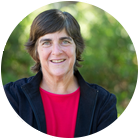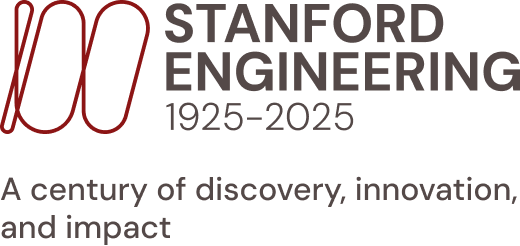Taking stock, and hearing from you, on the anniversary of the beginning of the COVID-19 pandemic
Dear Stanford Engineering graduate students,

As you’re all undoubtedly aware, this week marks one year since the World Health Organization declared COVID-19 a global pandemic — one year of disruption and upheaval, as nearly all of us had to find new ways to work, socialize, and take care of ourselves and loved ones.
For many of us, the year has been even more challenging than we might have imagined. Everyone’s circumstances are different, but I want to take this opportunity, in my monthly letter, to acknowledge the many losses and difficulties in our community and throughout the world. At the same time, I hope that as each of you take stock of the challenges of the past year, you also reflect on all that you’ve accomplisheadline. There was certainly no playbook on how to be a graduate student during a pandemic. I’m proud of how you have done your best to continue your studies in far from ideal circumstances, while also taking care of yourselves, supporting one another, and staying as safe and healthy as possible.
One thing I’ve appreciated this year is hearing from you — about your academic work as well as any concerns you may have. Some of you have reached out individually, which I always enjoy, and earlier this week I met with the Dean’s Graduate Student Advisory Council (DGSAC). This relatively new organization, comprised of 21 graduate students representing each of our nine departments and ICME, was created to elevate the concerns of graduate students, and more generally to work in coordination with me, other deans, and department chairs to inform decision-making around key areas affecting graduate students.
Some of the topics discussed recently in the council include improved communication and transparency around our PhD student funding policy (which you can read about here); the advisor-advisee relationship and more generally cultural issues in research groups; community-building in masters student cohorts; and many issues around diversity, equity, and inclusion in and outside of the classroom and lab setting. I had a great discussion with this group of engaged and thoughtful students, and I look forward to welcoming them to an upcoming meeting of the School of Engineering Executive Committee, comprised of deans and department chairs. You can learn more about the DGSAC and get in touch with them here.
A theme that’s emerged in DGSAC and in many of my conversations with students, as well as with faculty and staff, is the need to help ensure the physical and mental health of our community — and that’s never been more important. My colleagues and I are acutely aware of the many challenges graduate students face, particularly over the past year, and we are working hard to identify ways to ease those pressures. I also encourage you to continue to do your part to stay safe both on campus and at home, and to make sure to take the breaks you need to recharge. And once again I encourage you to make use of Stanford resources if you need them, listed below.
It has certainly been a very long year for all of us, but I’m an optimistic person by nature and a data person by training, so I am thrilled to see that the case numbers are declining and that more and more people are receiving the vaccination. We do need to stay vigilant, but I share with you the strong hope and belief that the next few months and beyond will look very different than the past twelve.
Jennifer Widom
Health and Wellness Resources
- The Virtual Well-Being site offers of resources available to you virtually, including coaching and counseling sessions.
- Well-Being at Stanford similarly provides resources to keep you informed and empowered as you journey through the academic year.
- The Office for Religious Life can be a support when dealing with grief and loss (and it’s not just for students who identify as religious).



